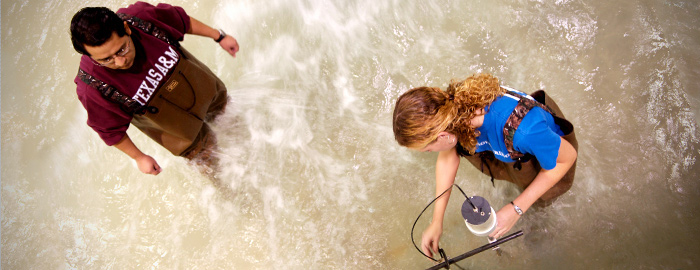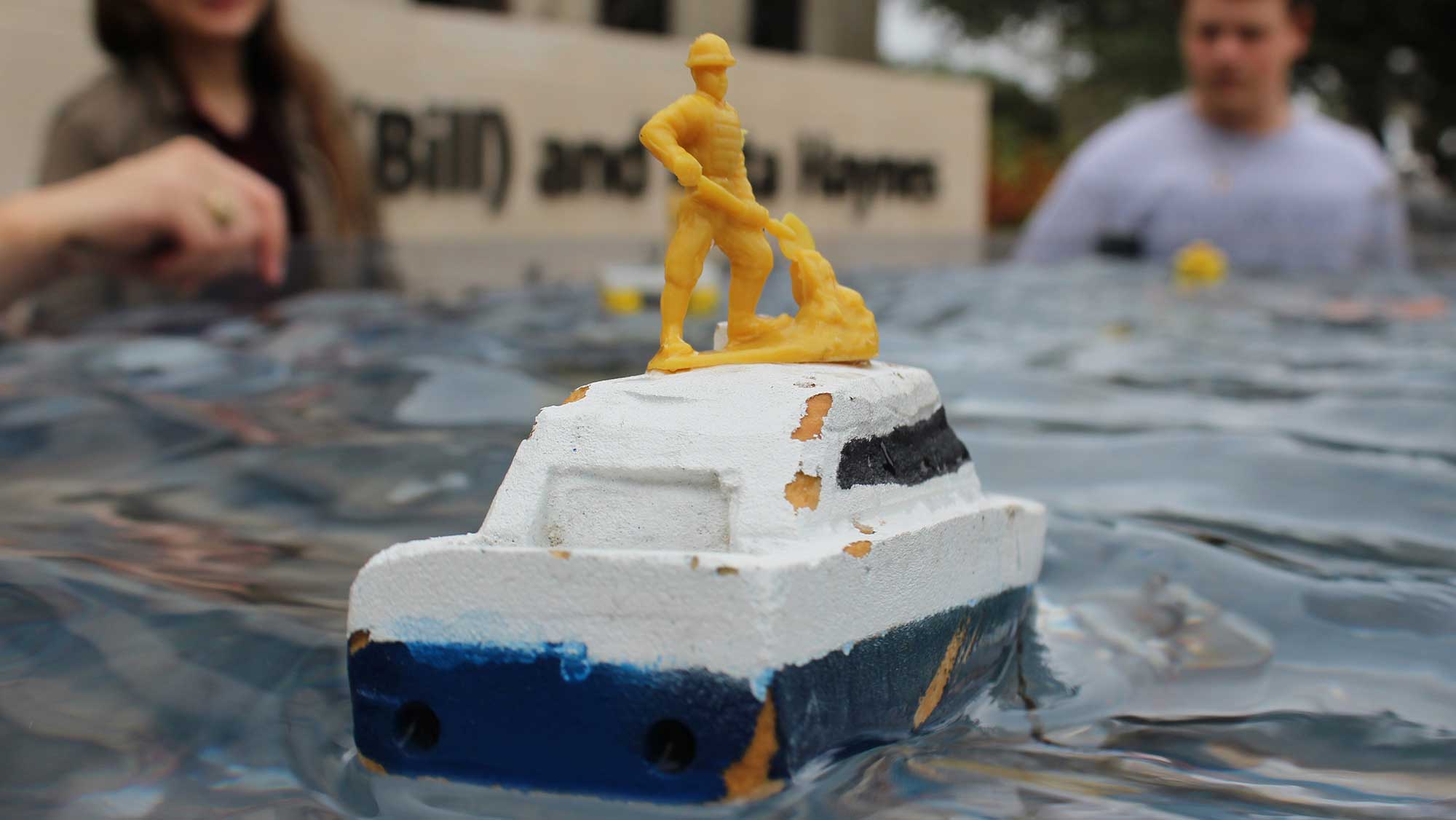
What is Ocean Engineering?
Ocean engineering (OE) is the application of engineering principles in an ocean environment. You explore the diversity and challenges of the ocean frontier while you prepare yourself for an exciting career.
Are you ready to build systems that monitor and control coastal environments? Build dikes, manage flood control systems, and power stations in or near the ocean? Or maybe you would like to use math and science to solve problems caused by tidal forces, waves, and currents?
Would you like to be involved in:
- exploration and exploitation of offshore gas and oil fields
- searching for economical methods for extracting energy from the oceans
- coastal zone management
- development of undersea vehicles and intelligent work systems
- maintaining and deepening harbors and their entrance channels
- designing fixed and floating offshore structures
- beach restoration
- instrumentation
- acoustic surveillance systems
Employment opportunities exist within private industry, defense contractors, consulting firms, and government agencies.
Your involvement could include: beach protection and nourishment, coastal structures, coastal erosion, development of ocean energy resources, instrumentation for coastal and offshore measurements, marine dredging and dredged material placement, moored and towed systems, ocean mining, offshore petroleum recovery, offshore structures, ports and harbors, search and salvage, suspended and dissolved constituent transport, subsea pipelines and cables, submersible vehicles, and underwater acoustics.
Why Study Ocean Engineering at Texas A&M University?
Texas A&M is one of a few universities in the United States that offer degrees in ocean engineering. You could conduct research, serve the public or educate others. Our broad program of instruction encompasses multiple areas of ocean engineering and prepares you for entering engineering practice, continuing onto
We offer ocean engineering continuing education activities for the people and marine industry of the state, nation and international community. We also serve the public and engineering profession in Texas and the nation through
As an OE graduate, you are qualified to contribute to the ocean engineering profession and society, gain employment in ocean engineering and related engineering fields with private and government organizations, and advance to positions of increased responsibility.

The undergraduate advisor is your first point of contact for questions about the undergraduate degree program. Contact them for questions about entering the Department of Ocean Engineering